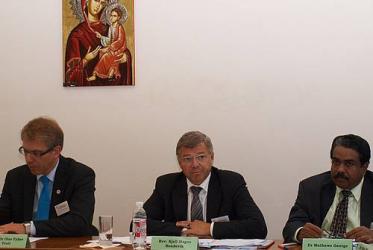Displaying 101 - 109 of 109
Interfaith partners advocate for health at UN summit
17 September 2010
Putting faith at work to halt the spread of HIV
24 March 2010
How theology can help save the world from climate change
22 December 2009
Inter-religious call to climate action ahead of UN summit
21 September 2009
WCC prepares for UN Advocacy Week
12 November 2008





